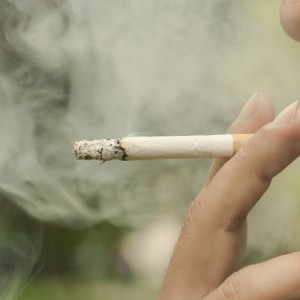 With 342 MPs voting in favor of a new law on smoking, it will soon be illegal in England to smoke in cars with underaged passengers, in order to reduce children’s exposure to secondhand smoke. This new law is set to take effect on October 1, 2015, and has been applauded by environmental and parental organizations eager to see a reduction in the risk of pediatric lung diseases due to secondhand smoke.
With 342 MPs voting in favor of a new law on smoking, it will soon be illegal in England to smoke in cars with underaged passengers, in order to reduce children’s exposure to secondhand smoke. This new law is set to take effect on October 1, 2015, and has been applauded by environmental and parental organizations eager to see a reduction in the risk of pediatric lung diseases due to secondhand smoke.
Passive smoking is related to about 165,000 new cases of diseases annually in the UK, making children particularly vulnerable to respiratory infections, asthma, bacterial meningitis and even death. “This is a great result and sends a clear message that protecting children’s health is a priority,” said the director of cancer prevention at Cancer Research UK, Alison Cox, who expects the decision to usher new laws mandating proper and deterrent labeling on tobacco packaging.
“This law will protect children from being forced to inhale cancer-causing tobacco smoke when they travel in a car. Now the government must press the accelerator and fulfill a commitment to protect children from tobacco marketing by sending regulations for plain, standardized packaging for tobacco products to Parliament without delay,” she added.
There are currently about half a million children who are exposed to secondhand smoke within the cars of their families. “Comprehensive tobacco control measures will protect children from a deadly addiction and save lives. These measures have strong support across the political parties, and are popular with the public,” said Cox.
[adrotate group=”3″]
The organization believes that parents are not completely aware of the risks of secondhand smoke. In addition, since it is invisible and odorless, the common, yet false idea is that blowing cigarette smoke out of the window eliminates exposure. Hopefully the new legislation will do the trick, as breaking the law means a £50 fixed penalty fine, similar to what is already in place in some American states, such as California, as well as in Canada and Australia.
Public Health Minister Jane Ellison explained that Public Health England is going to launch awareness campaigns both on the risks associated to secondhand smoke and on the new law.
“Taken together, the regulations on smoking in cars and standardized packaging will help de-normalise smoking and protect children from this deadly addiction,” explained the chief executive of health charity ASH, Deborah Arnott, who said that the organizations are also focused on standardized tobacco packaging.
A recently released Vital Signs report from the Centers for Disease Control and Prevention (CDC) reported that one out of every four people in the United States are exposed to secondhand smoke. This means 58 million non-smokers are still at risk of the serious complications cigarette smoking can cause. Despite the fact that exposure to secondhand smoke has decreased by half based on data collected between 1999 to 2000 and 2011 to 2012, the center believes today’s numbers are still too high, and that the public should be aware.

